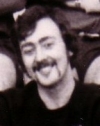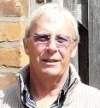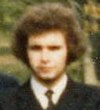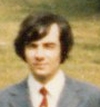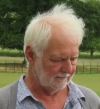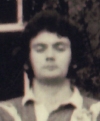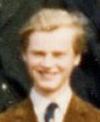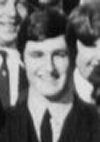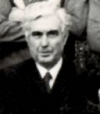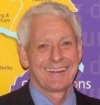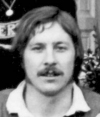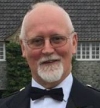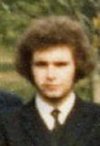This is an article written by Roy and published in the St Luke's magazine in 1964
KILLERTON - Life in the Country
Roy MacKenzie
I have resided in diverse rooms. There was a Norman castle by the Wye, a grey cell-like room in Balliol, and an old mill above the lichen in Winchester. While serving the Flag in the Common-wealth there was hygienic but stifling H,Deck in the depths of the troopship and the warm dampness of the Malayan jungle, where one might need to pit one's tenacity against that of a leech. More comfortable was the air-conditioned room of a Siamese hotel in Bangkok. However, not till last September was there the chance of accommodation in a country seat.
The grounds around Killerton were given by Sir Richard Acland to the National Trust in 1943. Twenty years later, after careful consideration by the Ministry of Education, the house was prepared as a place of residence for the expanding College. Thus, in September we 59 students had the task of creating a community. About half had opted, not without trepidation, to live here. Seven miles across the fields from College the First Year conscripts arrived, somewhat bewildered, finding no old hands to answer queries.
At the start we had but a warden (Sir Richard), Lady Acland, Mr and Mrs Thomas and the
Catering Staff, and the proctors (Russel Doidge, Paul Rafe and myself). The only social entity already existing was the Chapel, which now benefits from, or at least experiences, the regular attendance of some students. Chris Humphries has regularly played the organ at Sung Eucharist; and students organise their own Compline services on Sundays. The Baptist and Anglican Churches of Broadclyst have friendly relations with both the hostel and individual students. In the first two terms Ted Lee helped each week in the Baptist Youth Club.
We were grieved to learn of the death, on Sunday, April 26th, of the Rev Wiltshier, Vicar of Broadclyst. We extend our sympathy to Mrs Wiltshier.
To help compensate for our geographical isolation we established a bar at the start of the winter term. Immediately Harry Atkinson gravitated to the head, with a goodly band of assistants. Prices are modest and hours of opening short.
Since September many more or less tangible societies have evolved - some obvious and some creditably original. A squash-court already existed, and by Christmas a majority played occasionally, and some, led by Paul Rafe and Mel Symons, have since played a friendlies against teams from College and Exeter Hockey Club. A little later a football team was formed, and Keith Seedhouse, assisted by 'Spanner' Spencer and Ray Peate, led it with varying success against teams from College, Rewe, and Broadclyst. This enthusiasm reflects the communal spirit which should arise from our particular
milieu. The other major sport, weight lifting, was initiated by Keith Seedhouse, and the club is now firmly established with its own kit. Like Russel Doidge's photography, it Lives in the cellars.
Here is the creative culture which we miss in "Lord of the Flies"; the herding-together of the students contributes to maturity.
There are also less formal sports. In February our team of road-walkers defeated Rowancroft (contrary to the Express and Echo' report), and two, who brought Up the rear, appeared on Westward Television. We have, too, a small but venturous Dartmoor and Exmoor group, and several hardy scouters; and we play table tennis in our entrance hall.
Now that summer is near, cricket and tree skittles (a game for giants) should thrive. Mick
Bolton and Chris Brimecombe hope to arrange a car and scooter rally, if the police will allow all our quaint and ancient cars on the highway at the same time.
Musicians of varying ability abound in Killerton, so the organ and piano are often played.
Graham Sykes and Martin Pidgen help with Scottish Country Dancing, which is yet another link with the village.
In November John Mash, David Vale and Geoffrey Burnett, and later Chris Brenton, were elected to join the proctors on a social committee. In the autumn a Halloween Fancy Dress Dance was enjoyed amid suitably macabre décor. Also that term an informal musical evening was held for College tutors, and for the second time in the History of the World Sir Richard performed his tin denting trick. This function proved one of the rare College events at which staff and students could profitably meet. One could begin to discern the character of Killerton as a place of residence. To complete the term we
had a Christmas Dinner, well prepared by Mr and Mrs, Thomas, and Messrs, Campbell, Kemp and Whitburn were eminently suitable guests.
In the Easter term a second dance was held - pleasant but poorly attended. We found that a small community needs the constancy of its members if it is to thrive. Also the house was opened to some of Exeter's old people, who were entertained by students from Rowancroft and Killerton. This term has seen David Vale's 21s1, and we look forward to a great barbecue on May 30th.
Mike Shadwell, Pat Warren and Crosby Chacksfield administer the library, which has a fair number of useful books. Bob Byrt and Keith Potter in supplying milk, and Malcolm Warburton in arranging College meals, have worked steadily through the year.
In the first two terms, especially, we had our teething troubles. The quixotic supply of electricity became quite grim in the colder months. Liberal organ and piano playing in the TV room meant frayed tempers. At one time a petition threatened us regarding food, but now proper channels exist for complaint. Thanks to the patience of all and the help of certain individuals, not least of the Warden, things run quite smoothly now. If an anarchist had pioneered with us, he would now be likely to admit the need for a little self-imposed order.
The only remaining problem is transport, for those without car or scooter. Perhaps later the College will supply some form of economic aid for our more important excursions to the metropolis. I think the initiative evident above would justify such a subsidy. A few have found it necessary to move into the city, but others have Joined use. Now, in the spring, the beauties of the gardens are apparent even to the insensitive, so we are, on the whole, contented. We may be out, but we are certainly not down.
A.W. S. MACKENZIE

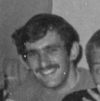
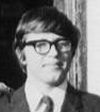

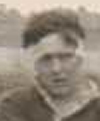

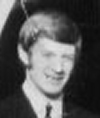







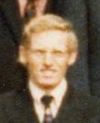
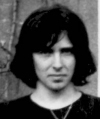







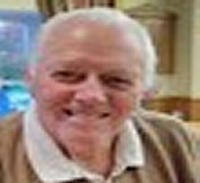
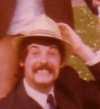

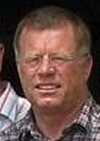

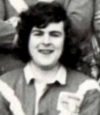
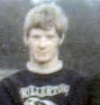


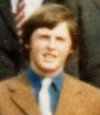
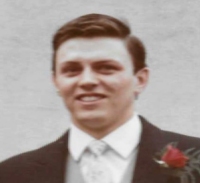
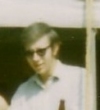




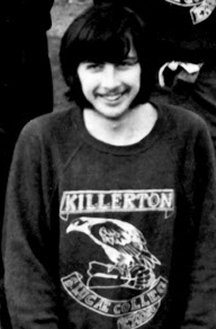

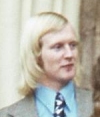





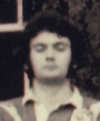



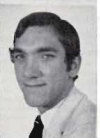







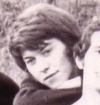
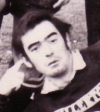


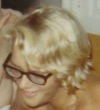
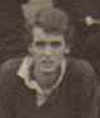


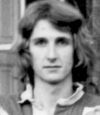



.jpg)

